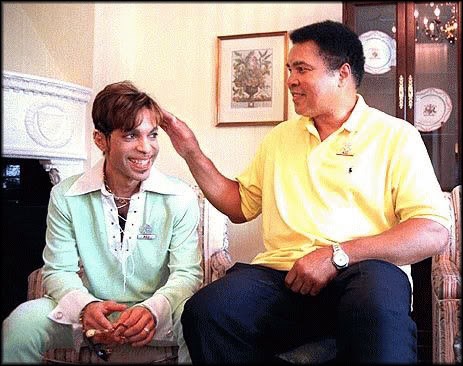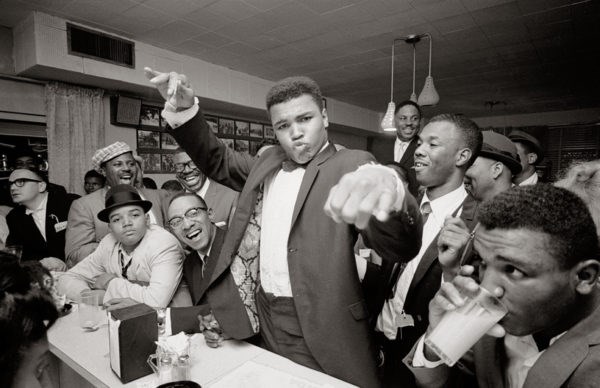He could float like a butterfly and sting like a bee and Friday was the funeral of The Greatest, Mr Muhammad Ali. In his passing, there was a significant loss felt by many, but based on his impact in sports, life and civil rights, the mourning of his death seems a bit underwhelming.
Muhammad Ali was a three-time heavyweight champion, in a time when the heavyweight division was bustling with straight bruisers and killers. Dudes like Sonny Liston, Ken Norton, Ernie Shaver, Joe Frazier and George Foreman were complete animals and Ali put it on those guys; but most of his magic in the boxing ring was conducted in an era that is considered old to most young people.
His Olympic gold medal and his first heavyweight title were won in the 1960s and his greatest boxing days were in the 60s & 70s, so his greatness was never fully appreciated by nearly two generations of Americans. That's especially true for anyone born post 1985, who entered their teen years fully immersed in the 24 hour news cycle and not so much checking out the black and white videos of Ali on Youtube.
When Ali refused the draft for the Vietnam War, in 1967, it was a bold move. He was convicted of draft evasion, fined $10,000, sentenced to five years in prison, stripped of his championship belt and his passport, banned from boxing for three years-which means he couldn't earn a living, and was a national scoundrel to White America. Yet, his response to why he refused the draft is very powerful. It was clear and concise and nearly unheard of for a black man to say, let alone a sports champion, who were often voiceless.
The case was under appeals for several years, which kept him out of prison and the conviction was eventually reversed in 1971, one year after he returned to boxing in 1970.
He was also a brilliant poet, who was unique in his ability to put his boasting and boxing ring bravado, into poetic verse. He was the beginning of Hip-Hop, before the beginning of Hip-Hop and you ain't even know it. He had political verse, like the poem he recited about the Attica Prison Riots, where the guards open fired on the inmates, and poems of talking trash in general, but he was at his best when predicting the rounds in which he would knock out his opponent.

Though born Cassius Clay, he converted to Islam and changed his name to Muhammad Ali in 1964, shortly after defeating Sonny Liston in February of that year, for the world heavyweight boxing crown. His love of people and of black people was prominent in his actions and words, and although many are familiar with the catchphrases attached to his life like "I am the greatest" and "float like a butterfly, sting like a bee", he was such a bigger figure, and a man who can't be summed up with a short article and whose life is a lesson in sticking to your convictions.
Even if you don't know him much, he's probably your favorite idol's idol, and every time someone speaks out and uses their celebrity platform to voice a righteous view, a view that might not be universally liked or appreciated; that's Muhammad Ali right there.




